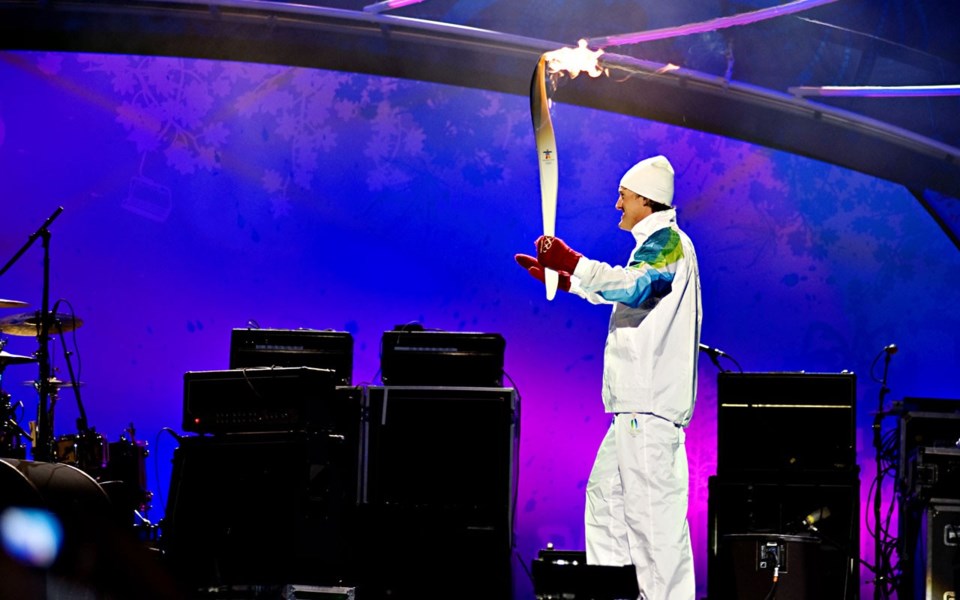It's hard to believe it's been eight years since Whistler hosted the Olympic and Paralympic Games.
In the lead-up to our Games there was plenty of angst about the cost of the mega-event, the enormous impact it was going to have on the Sea to Sky corridor and all who lived here, and if it was really worth it to host such a sporting competition.
There are no simple answers to these questions, even today.
But as we cheer on Canadian athletes and our sport heroes at the 2018 PyeongChang Games, which start today (Feb. 8), I'd argue it's hard not to feel a little bit of pride at how Whistler hosted the biggest sporting celebration in the world in 2010.
Whistler and Vancouver's Games came in at $4 billion, plus another $4 billion in associated costs such as the new Canada Line, the Sea to Sky Highway upgrades, the upgrades to the Vancouver Convention Centre, and so on.
Of that $8 billion, more than $6 billion was from governments or public agencies like TransLink and the airport authority. A 2002 report stated that for every $12 spent by Ottawa and B.C. on the three big projects, local taxpayers contributed only $1 — that's a pretty good deal on the surface, but there is only one overall taxpayer at the end of the day — and that's us.
South Korea's Games are pegged at $13 billion, so far (same price tag as the Summer Games in Rio De Janeiro, Brazil in 2016). It has built six new venues and upgraded six others in three different places in Gangwon Province.
A new USD$3.7-billion express train line was also built to connect Seoul and PyeongChang for the Games.
Though you would read nothing reflecting this, it's hard not imagine that the South Koreans privately question such expenditure on the Winter Olympics. A recent poll found that only about one third of the population was even interested in the winter Games. Indeed, skiing is very far down the list of things South Koreans are interested in.
Over $100 million of the PyeongChang budget is a clear waste right off the top. That's how much the stadium for the opening and closing ceremonies cost — and it's being mostly torn down as soon as the Paralympics is over.
The stadium will be turned into a 5,000-to-10,000-seat arena with an Olympic museum. To date, the 2018 Games are costing twice the original budget from 2011.
That's still a better plan that the outcome in Rio where the stadium cost $550 million to refurbish for the Games and today still exists in disrepair despite new owners.
All of this pales in comparison to the Sochi 2014 Winter Games, which came in at $50 billion. Here, also, many of the venues lie unused.
Let's also remember that the Rio Games displaced an estimated 60,000 people, Sochi's Winter Games did little in the end to boost living standards in the venue sites and the London 2012 Summer Games resulted in thousands being evicted so landlords could cash in on the event.
What is the answer, then?
Perhaps we are starting to see a glimmer of it in the bid proposal — still in its very early days — by Calgary to host a multi-site Games making use of pre-existing venues, including the 2010 Olympic ski jumps at the Callaghan, south of Whistler.
Calgary Mayor Naheed Nenshi departed for PyeongChang this week to head a delegation participating in an observer program for potential hosts of the Winter Olympics in 2026. The cost of the trip — which will be shared between Calgary, Canmore and the provincial and federal governments — is about $135,000.
Whistler's Olympic venues, though not moneymakers, are well used for both competition and tourists. In 2016-17 season, there were 10,000 public slides (total for winter bobsleigh/skeleton and summer bobsleigh — that's almost 4,000 more than the previous season) at the Whistler Sliding Centre, and at Whistler Olympic Park, 65,000 people visited over the summer and winter (up almost 10,000 from 2015-16).
The Athletes' Centre saw fitness classes held, athletes and coaches housed and even parent-teacher lectures. On top of this, the former athletes' village is a vibrant neighbourhood of much-needed employee housing. (The 2010 venues are supported from a $110-million, taxpayer-funded Olympic legacy trust set up before the Games to ensure some venues didn't become white elephants.)
But is it truly possible to host an event such as the Olympics as a one-off and not face economic peril? I would argue no. There is no expert in the world in any field who would suggest that hosting a mega-event, as a one-time thing is a recipe for success.
An Oxford University Saïd Business School study released last year found that "...the Olympics have the highest average cost overrun of any type of mega-project."
So while we celebrate our success, let's get creative about how to keep the spirit of the Games alive while making it affordable to host.




